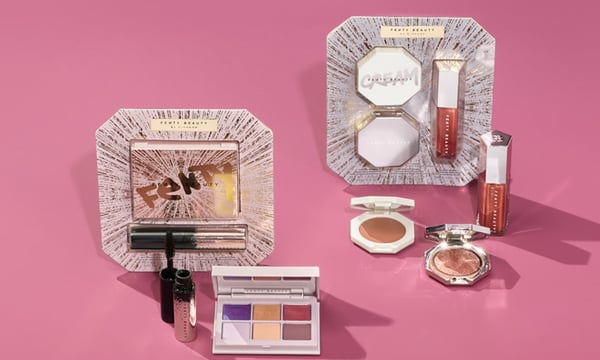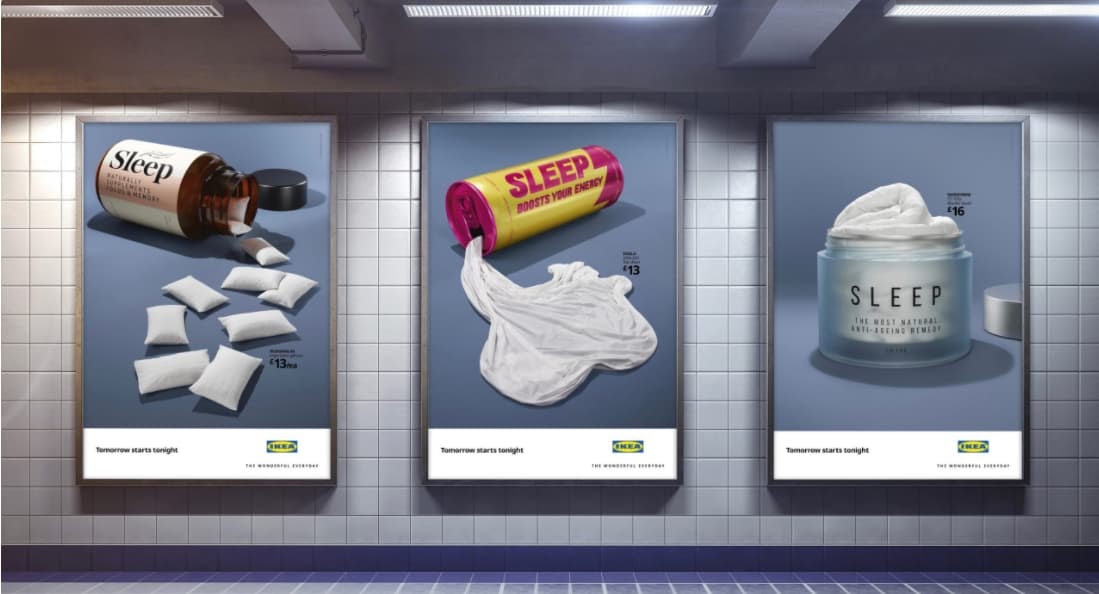- Like
- SHARE
- Digg
- Del
- Tumblr
- VKontakte
- Flattr
- Buffer
- Love This
- Save
- Odnoklassniki
- Meneame
- Blogger
- Amazon
- Yahoo Mail
- Gmail
- AOL
- Newsvine
- HackerNews
- Evernote
- MySpace
- Mail.ru
- Viadeo
- Line
- Comments
- Yummly
- SMS
- Viber
- Telegram
- JOIN
- Skype
- Facebook Messenger
- Kakao
- LiveJournal
- Yammer
- Edgar
- Fintel
- Mix
- Instapaper
- Copy Link
Stores and websites aren’t a mishmash of products with no discernible organization for a reason. People want a sense of direction and a positive customer experience, even when they are “just browsing.” They also want to know they are in good hands when it comes to the product category they’re exploring — whether that’s kitchen tools, breakfast cereals, or winter coats.
Product category marketing helps your brand stand out among related items, so your company’s products wind up in the shopping cart — whether real or virtual.
What is a product category?
A product category is “a particular group of related products,” according to the Cambridge Dictionary.
Your distinct offerings and customer personas should guide the organization and grouping of your product categories.
For example, REI Co-Op offers a wide range of outdoor gear. To guide customers, they split their products into interest-based categories, such as running, climbing, and snow sports. For fashion retailers, it makes more sense to organize categories by product type, such as shoes, shirts, and pants.
Product category marketing amplifies why a company is the best choice within that group of products. Why should customers opt for your offering rather than your direct competitors?
Gaining brand recognition and appreciation across a product category means greater returns for your marketing efforts. When consumers have positive experiences with a specific product category it also builds brand trust, which often expands to other categories through the halo effect.
Product categories are sometimes confused with product classification. Both are organizational strategies and both help guide marketing decisions, but classifications are much broader (think convenience goods, shopping goods, and specialty goods).
Let’s take a look at nine product category marketing examples to inspire your own.
9 Product Category Marketing Examples
1. Fenty Beauty
Product category: High-end foundation makeup
Admittedly, it helps to have singer and business powerhouse Rihanna at the helm. But Fenty Beauty innovated the idea of foundation makeup “for all,” and its commitment to inclusivity made the brand an instant hit.

Beyond foundation, the Fenty Beauty Face products include bronzer, highlighter, powder, and concealer in shades that work for everyone. The launch was an industry transformer, with established brands expanding their foundation color lineup in response.
The marketing for Fenty Beauty Face products zooms in on the wide palette of available colors, and features models and influencers across the shade spectrum.
2. Orvis
Product category: Dog beds
This Vermont-based retailer has been a big name in fly-fishing and outdoor gear since 1856. But they’ve also carved out a product niche with dog gear — and dog beds in particular. The brand draws people who want comfortable dog beds for their furry pals in styles that enhance their home decor.
The marketing images of dogs sleeping or lounging on Orvis beds is enough to inspire a nap. They’ve made their site a resource for dog health and behavior topics. And their social feeds are chock full of irresistible images and videos of dogs, including puppies in a hammock (!).
3. Ikea
Product category: Bedding
Putting together their furniture may be a tough task, but at least Ikea supports your relaxation too. The marketing of their bedding shows off playful sheets and prints for the kids and a mix of bold designs and neutrals for adults. The bed linens product category is grouped under ‘home textiles’ together with curtains, quilts, pillows, and towels.

A playful Ikea ad campaign in the UK even featured bottled bedding and pillows, connecting the dots between a restful night’s sleep and health. In the current pandemic, the company marketed the idea that comfortable bedding was essential — especially when your bed is doubling as your office.
4. Swarovski
Product category: Jewelry
For more than a century, Swarovski has put the sparkle in gowns, tiaras, jewelry, and decorative sculptures. For their jewelry product category, Swarovski puts luxury within reach with a mix of modern and classic crystal necklaces, earrings, bracelets, and watches.
They sustain brand awareness with seasonal collections, collaborations with designers and celebrities, such as Karl Lagerfield and Penelope Cruz, and pop culture-inspired releases. This fall, their #SparkDelight social media campaign featured influencers sharing tips for finding joy in the little things since big events were off the social calendar.
5. Target
Product category: Grocery essentials
Target is known for its positioning across product categories, including affordable fashion, electronics, and cleaning supplies. Though they’re grocery section is smaller than most supermarkets, they cover all of the ‘must-haves’ on any shopping list — from milk to salads to pasta.
In 2019, Target added its own brand of grocery essentials with their Good & Gather line, which includes frozen berries, cereals, snack foods, and eggs. Their Instagram Stories showcase easy snack and meal ideas, and feature foodie influencers like TikTok and Instagram sensations Tabitha Browne and Lisa Lin.
6. Dove
Product category: Skin care
Launched in 2004, Dove’s ‘Real Beauty’ campaign was far ahead of other brands in promoting body positivity and self-acceptance. Their ad campaigns for body lotions and soap have long featured women with a wide variety of body types and skin colors.
Rolls, wrinkles, cellulite, and stretch marks are all on proud and beautiful display across their social channels. Today, their skin care brand identity is equated with self-confidence, and Dove body lotions and soaps are frequent flyers on ‘best of’ lists for affordable skin care.
7. Michaels
Product category: Holiday and seasonal decor
The company known for DIY is also a go-to spot for holiday and seasonal decorating. Michaels stores transform every month or two with festive decor for spring, summer, Halloween, Thanksgiving, Hanukkah, Christmas, July Fourth, Mardi Gras, and Pride Month.
Black Friday deals = an extra merry holiday haul ? #SpottedAtMichaels
?: @vickiboutin pic.twitter.com/dxmiIq9zbC— Michaels Stores (@MichaelsStores) November 28, 2020
Their social media and weekly ads herald each season with ready made decorations galore.
8. Patagonia
Product category: Eco-friendly outerwear
Patagonia’s tagline is “We’re in business to save our home planet” and the company’s marketing efforts lead with their commitment to sustainability across product lines. Their website urges consumers to “Buy Less” and prominently features a section of “Used Gear.”
When you visit their Facebook or Instagram pages, you have to hunt a bit to find posts highlighting particular products. Instead, the feeds focus on pressing issues, such as environmental stewardship and fair labor practices.
When you do need to purchase a new (or used) piece of outerwear, consumers know they are supporting a company actively minimizing their negative impacts.
9. Grove Collaborative
Product category: Green household cleaning supplies
Grove Collaborative is another company focused on sustainability. Their goal is to make it simple and affordable for people to choose green household products that are non-toxic, sustainable, and cruelty free.
The company offers eco-friendly cleaning supplies, including concentrated soap and detergent refills and reusable glass bottles, which they send out in recurring monthly shipments.
Their marketing reflects their minimalist ethos, with images of their cleaning products at the ready in pristine kitchens and bathrooms. Grove uses Instagram Stories to attract new customers with product images, cleaning tips, and even humorous videos.
The company also shares ideas for holiday meals and decorating, and releases a monthly ‘Sustainability Snapshot’ of their environmental impact, such as the number of single-use plastic bottles they keep out of land-fills.
Each of these brands has clarified where their products fit in larger retail categories. This helps them market their distinct value to target customers and, ultimately, earn a greater market share within these product categories.
Originally published Dec 17, 2020 7:00:00 AM, updated December 17 2020

![→ Download Now: Free Product Marketing Kit [Free Templates]](https://no-cache.hubspot.com/cta/default/53/08b5e1f4-5d26-405b-b986-29c99bd0cb14.png)


